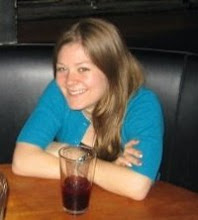Today is the third day of work at Uluru with Conservation Volunteers Australia (CVA). I am part of a team of 8 people, including our 60-year-old english obsessive compulsive team leader (Martin), and the girl (Tina) that is to replace him starting the next session when he leaves--not for retirement, but for a 4 month holiday. Of the rest of us, I am the oldest--surprise surprise--but not by too much. The others are a between 21 and 23. They include 2 girls from Korea (Lily and Max), a girl (Regina) and a guy (Adami)from Tiawan , and a guy from Holland (Martijn).

Other than the two employees of CVA, I am the only native english speaker. Everyone else does speak english--but at varying degrees. The guy from Holland (Martijn) and the girl from Tiawan (Regina)can speak it conversationally--although we have discovered some humorous translations and strange uses of words. The other 3 understand directions and at least part of most conversations but usually take a bit longer to find their words.
But what is really interesting is watching all these native Koreans, Dutch and Tiawanese speak to each other in their own version of english. And to make it even more complicated for them, each of the 3 native english speakers that they are surrounded by here use different accents (English, Australian and American) and different phrases and slang that even the 3 of us have had to ask each other for clarification.
Last night, the English team leader asked the Dutch guy "How have you found the work?" And the Dutch guy proceeded to give him a description of how he found CVA online and thought it would be a great way to visit Uluru.
I have helped out with the correct pronunciations of words like "automatically", "canoe", "aluminum"(which varies from one english speaking country to another anyway), and "shithead".
We were discussing possible card games to play last night and one of the Korean girls suggested a game called "One card". She asked if we knew it and after a few minutes of contemplation it occurred to me that the game she was describing was "Uno"-- which is the spanish word for "one". Once we cleared that up, the Tiawanese guy joined us and the Korean girl asked him if he knew how to play "Uno --which of course he did not know what we were talking about because why would a Tiawanese guy know the spanish word used in english to describe a game that Tiawanese has its own word for.... whew.
And speaking of spanish, we had Tacos for dinner last night. One of the Korean girls and I were on cooking duty -- somehow I was automatically considered to be the taco expert here -- perhaps because I come from the same Hemisphere as Mexico? Anyway, the Dutch guy had never had or even heard of tacos before, and most of the Asian kids had only had them once or twice and had never had the hard shells like we were eating!
And the other morning the Tiawanese girl didn't know what oatmeal was and asked me how you make it -- if you haven't been around me at breakfast in the last year or so, you should know that I am an oatmeal connoisseur.
Anyway, as a result of all this crazy translation business I am finding that I am simplifying the way that I speak. I am avoiding big words and describing things in ways that are very simplistic. Sometimes I even find that I skip words and talk in broken english like they do! It's crazy how quickly people's speach patterns influence you when you speak 24 hours a day with them. I also am finding that jokes and sarcasm don't always translate. I am sharing a room with the Australian girl, which is nice because at the end of the day we can laugh over the miscommunications and mistranslations -- even those that occur between her language and mine.


1 comment:
I really find it hilarious that you go all the way around the world so that you can, once again, be surrounded by Asians. (Although, it appears that one of those Asians is actually a white person... is that right?)
I'm eating babaganoush right now. You want me to send you some?
Post a Comment